Is Britain becoming an authoritarian state?
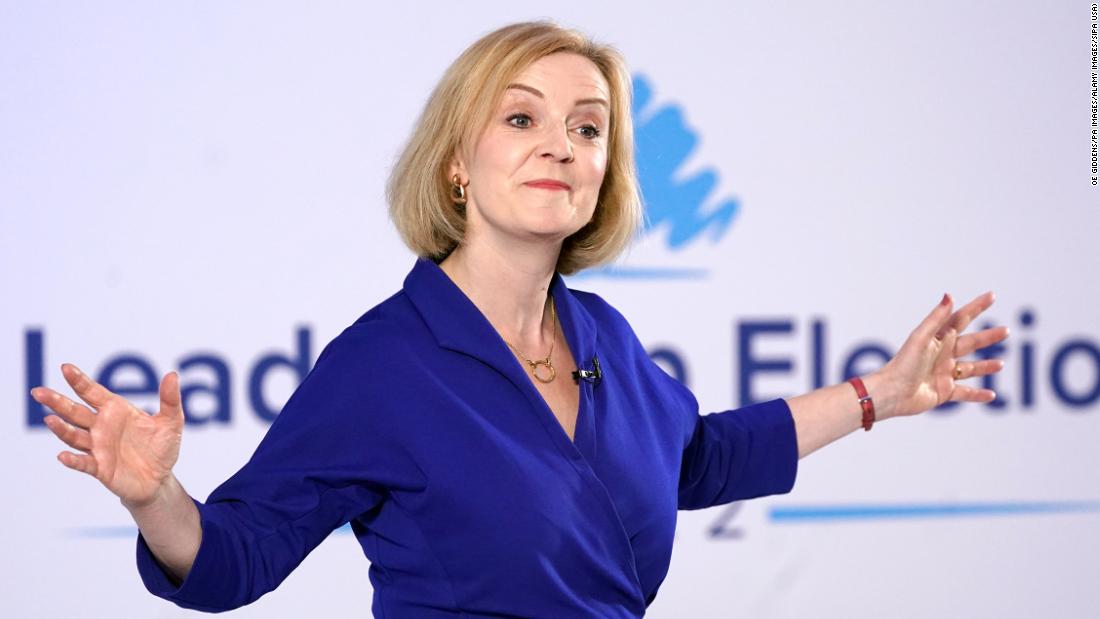
In another splendid weekend for British workers, reports have emerged that incoming Prime Minister Liz Truss is planning to rip up employment laws and protections for workers.
No doubt to be unveiled as a post-Brexit benefit, it is suggested that Truss intends to "improve UK competitiveness" by effectively tearing up a range of protections offered to workers as part of EU law.
According to The Times, the review of these rights and protections will be led by renowned workers-rights advocate Jacob Rees-Mogg. Areas up for review are said to include:
- The 48-hour working week, potentially making it legal to be sacked or discriminated against if a worker refuses to work over 48 hours in a week.
- Rules on taking breaks, potentially removing workers' rights to legally mandated breaks during their shifts.
- Holidays and holiday pay, which currently guarantees most people four weeks' holiday a year plus bank holidays, could also be reduced.
Britain already has less paid holiday entitlement than Germany, Belgium, Portugal, Ireland, Italy, Serbia, Greece, Albania, Hungary, Croatia, Romania... the list goes on. Our holiday entitlement is not horrific, but it is by no means overly generous to begin with.
Truss' views on British workers have been floating around for over a decade. In a paper she co-authored in 2012, Britannia Unchained, she claimed that British workers are "amongst the worst idlers in the world" and that the UK "rewards laziness".
Ironically, in the years leading up to this paper, British productivity had steadily increased. Since 2010, it has totally stagnated.
Let's have a think about what's changed since 2010.
Have people been given lots more holiday?
Nope.
Have people been given a much higher entitlement to breaks at work?
Nope.
Then they must be working fewer hours than in 2010?
Nope, in fact, the number of hours worked on average has increased.
That's odd. Surely if Truss wants to slash workers rights, there must be evidence that workers rights are decreasing productivity?
Nope.
In fact, what becomes abundantly clear when looking at stagnation in the UK is that it is linked – perhaps unsurprisingly – to real terms pay and economic prosperity.
Real wages in Britain today are still lower than they were in 2008. The cost-of-living crisis and spiralling inflation was the nail in the coffin of any hope of them stabilising at a higher level than they were in 2008.
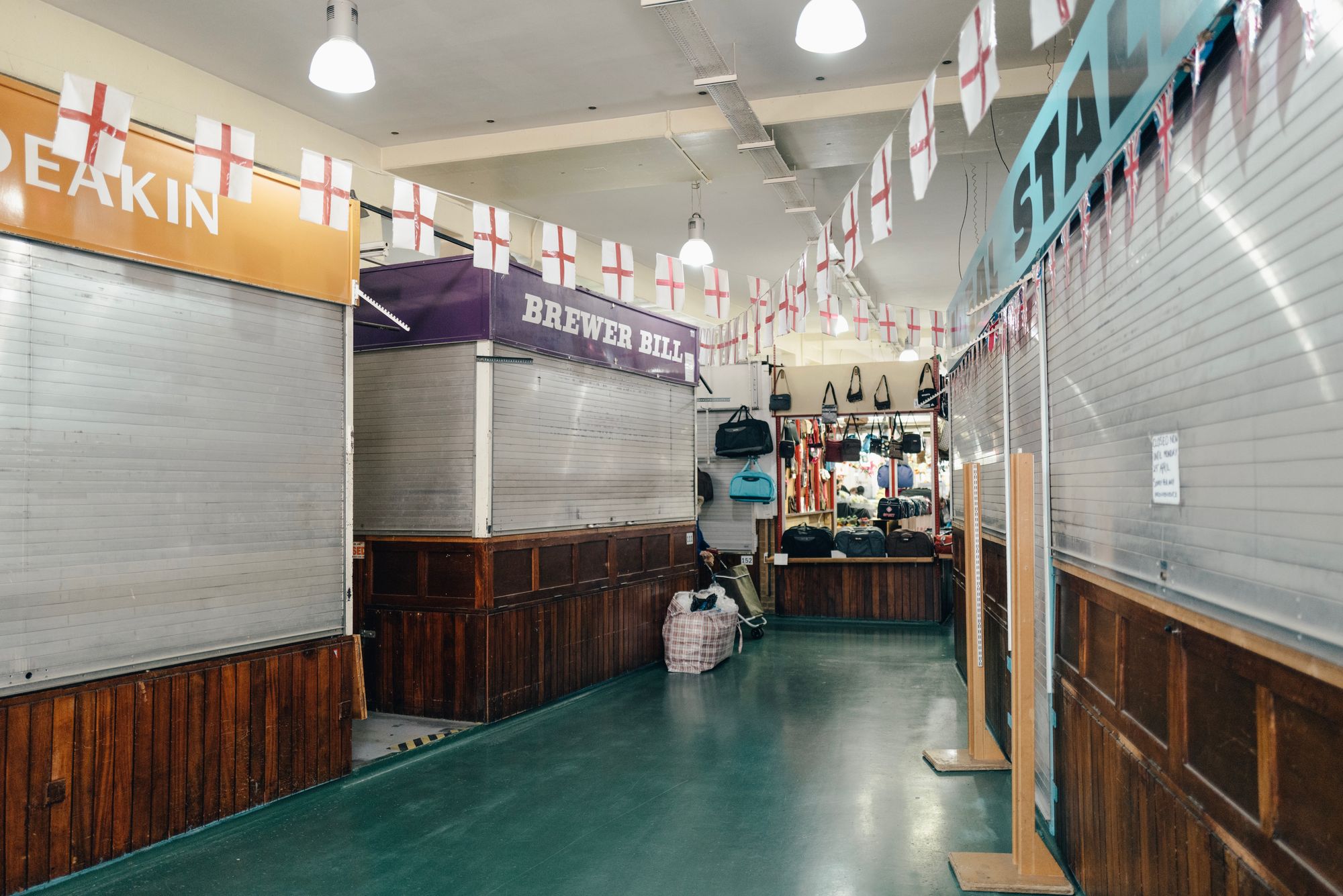
Furthermore, Britain has been at the core of two or three major economic shockwaves in the past decade and a half. The 2008 financial crash wrecked havoc on wages and the wider economy. The Brexit vote in 2016 damaged investment into the country and the value of the British Pound. And as if that weren't enough, the Covid-19 pandemic cost the British economy billions in damage, and the long-term implications of that are far from over.
It is especially odd, therefore, that with a population knocked from pillar to post over the last 15 years, the Tories seem to believe that the real problem here is that everything's just too damned easy for everyone. Those pesky rights must be thrown away to stop people "slacking".
This ideological rhetoric, lifted straight from the 19th Century concepts of the "deserving" and "undeserving poor", show that the aristocratic arrogance of British ruling classes – especially in certain wings of the Conservative Party – have never disappeared. They've festered, waiting for the right economic conditions in which to rear their ugly heads once more.
When they did arise, the entire populist wheelhouse came to the party: attacks on immigrants, benefit scroungers and "woke lefties" have dominated the negativity in the written press for years. The true architects of people's pain – the politicians, the corruption, the right wing – given a free pass.
Unfortunately, all of this is just the tip of the iceberg.
The leading brains (for want of a better phrase) in Liz Truss' upcoming cabinet are similarly-minded. The 2012 "idle workers" polemic was co-authored by none other than Dominic Raab, Priti Patel and Kwasi Kwarteng. In 2012, they were little-known backbench MPs. Now, they include the current Home Secretary (Patel), the upcoming Chancellor (Kwarteng - if rumours are to be believed) and the former deputy Prime Minister to Boris Johnson (Raab). These people are at the heart of the Great Offices of State.
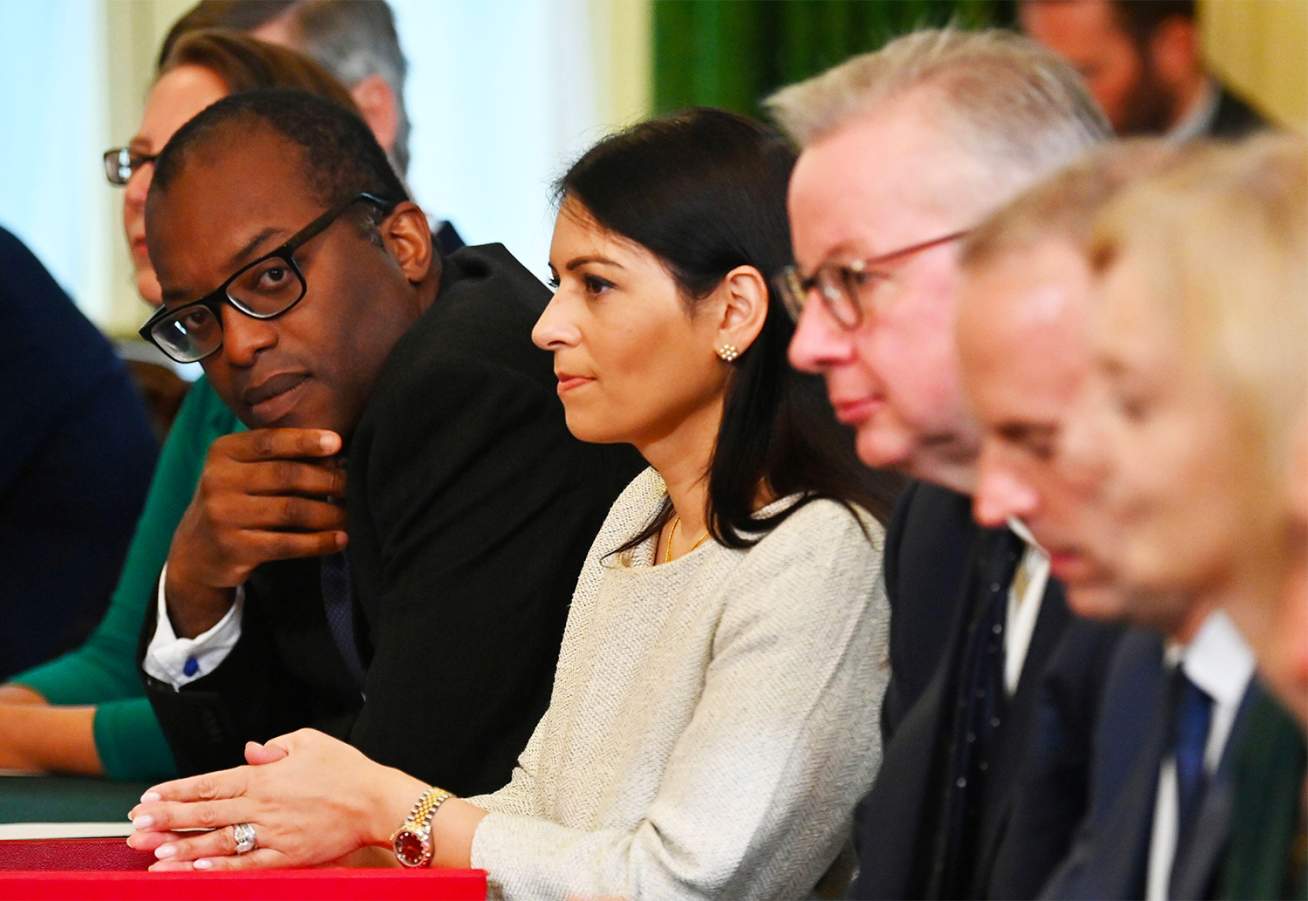
The Byline Times wrote an excellent article on this in July, examining the authors of Britannia Unchained. As AV Deggar says, these Conservative heavyweights are advocates of a system of "purist capitalism" in which "corporations should be liberated from the burdens of the rule book." It is an economic system that has been shown – repeatedly – to fail the people. It can deliver enormous economic rewards to the bosses and shareholders, who use the lack of regulation to implement high-profitability, low-sustainability operating procedures. The entire collapse of Northern Rock in the UK was an example of this system failing.
We can see it in action today, with water companies bringing in huge profits whilst pumping endless gallons of raw sewage into our seas and rivers.
Perhaps the finest example of all: Brexit, which will enable this bonfire of workers' rights and the UK to avoid money laundering and tax avoidance scrutiny.
It is profiteering at the expense of everything else: the environment, people's livelihoods and savings, the cost of living...
It is also a recurring trope in our society, spear-headed by the right wing and the Conservative Party. Claim (erroneously) that something is irreparably broken and must be fixed, usually through privatisation. This could include the NHS, water companies, rail networks, or even the Royal Mail. Privatise it and hike up prices, at the expense of workers rights, productivity and customer satisfaction, and then allow those profits to by siphoned off and run the enterprise into the ground.

It is the absence of regulation that allows this practice to occur. Former Conservative MP Rory Stewart on a recent episode of The Rest Is Politics podcast even acknowledged that an absence of regulation was the key failure in the privatisation of the water networks in the UK.
The point is that these ideologies are demonstrably flawed, if not in theory then certainly in practice. The mistakes are made repeatedly, to the point where the logical conclusion is that they are not mistakes. They are wilful decisions.
It seems increasingly apparent that the Conservative Party hold their own interests over those of the British people. British exceptionalism really means the exceptionalism of the British elite to be above the rules, above the law, and above scrutiny. And it is at this point that it becomes increasingly clear that Britain is lurching towards authoritarianism.
The near-endless list of scandals that (eventually) led to Boris Johnson leaving office all indicated a clear belief at the heart of the Conservative Party that it was OK for the Prime Minister to have broken the law – his own law – at a time when the British people were suffering immense hardship and struggle in the middle of the Covid pandemic.
The less-reported PPE contracts awarded by Tory MPs to friends, donors and family is nothing short of a complete and utter disgrace. Oh, and also illegal.
These scandals are the hallmarks of failed states, but do not in themselves constitute authoritarianism. Other recent legislation, however, is far more dangerous. New policing powers were found by Parliament's Joint Committee on Human Rights to be "creating a hostile environment for peaceful protesters" by removing the right to peacefully protest. It even shifts the burden of proof onto the defendant to prove that "their actions were reasonable" rather than being innocent until proven guilty. In effect, it reverses a key cornerstone of the British legal system in favour of an authoritarian state.
As international NGO Global Witness stated earlier this year, the Policing Bill "encourages a worldview in which defenders are perceived as enemies of the state". Those are chilling words. Even more chilling is its summary that the bill is "an alarmingly authoritarian attack on democracy and civil space."
The bill was put into effect in June, when anti-Brexit protester Steve Bray was harassed by police and had his audio equipment taken away for "being too noisy" outside Parliament.
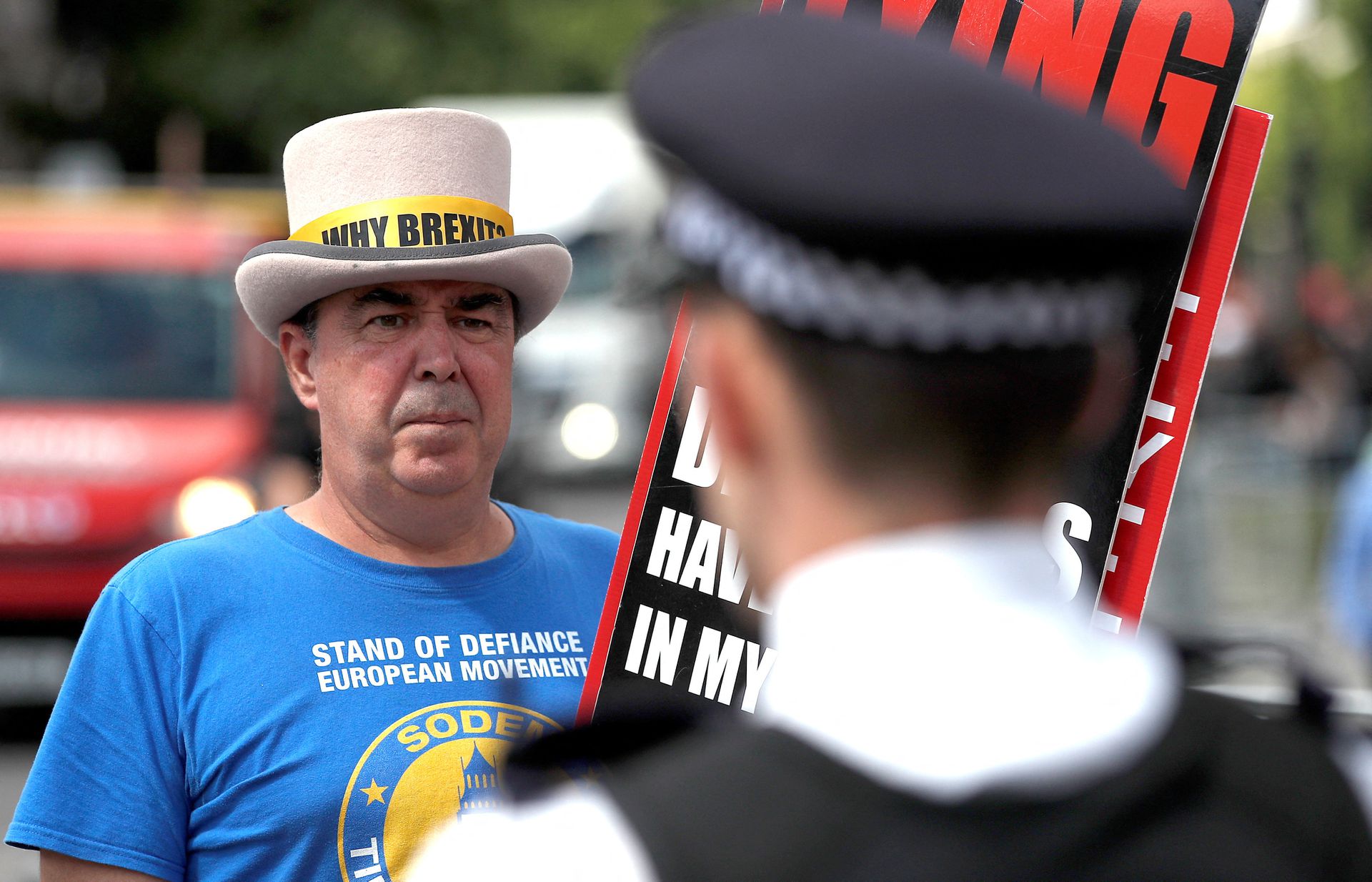
Furthermore, the government continues to tighten its grip on the media. Former BBC presenter and once-upon-a-time poster child for the state broadcaster, Emily Maitlis launched a scathing attack on the BBC's relationship with the government just last week. She argued that politicians were acting in ways that are “deeply and clearly deleterious to basic democratic government”, trampling over constitutional norms, making “things that would once have shocked us now seem commonplace”.
In one of the more frightening statements she makes, she said that she was publicly rebuked by the BBC after accusing Dominic Cummings of breaking Covid lockdown rules by travelling to Barnard Castle. They did so after a phone call from Downing Street. She states that it was almost as if the BBC wanted to send a "message of reassurance" to the government.
So we find ourselves in a position where we have a government that openly and repeatedly lies to the population about what makes economic sense, about what is right and wrong, and what is legal and illegal. It does so willingly, knowingly and without care. And it is increasingly supported in this task by a media that either financially support the Conservative Party (in the case of Evgeny Lebedev, Rupert Murdoch etc) or are appointed by them, in the case of the BBC.*
The challenges facing our society and our economy cannot and will not be solved through authoritarianism. They will be amplified. Inequality will continue to rise in Britain, living standards will continue to decline, and Britain's inexorable slide down the global rankings will continue.
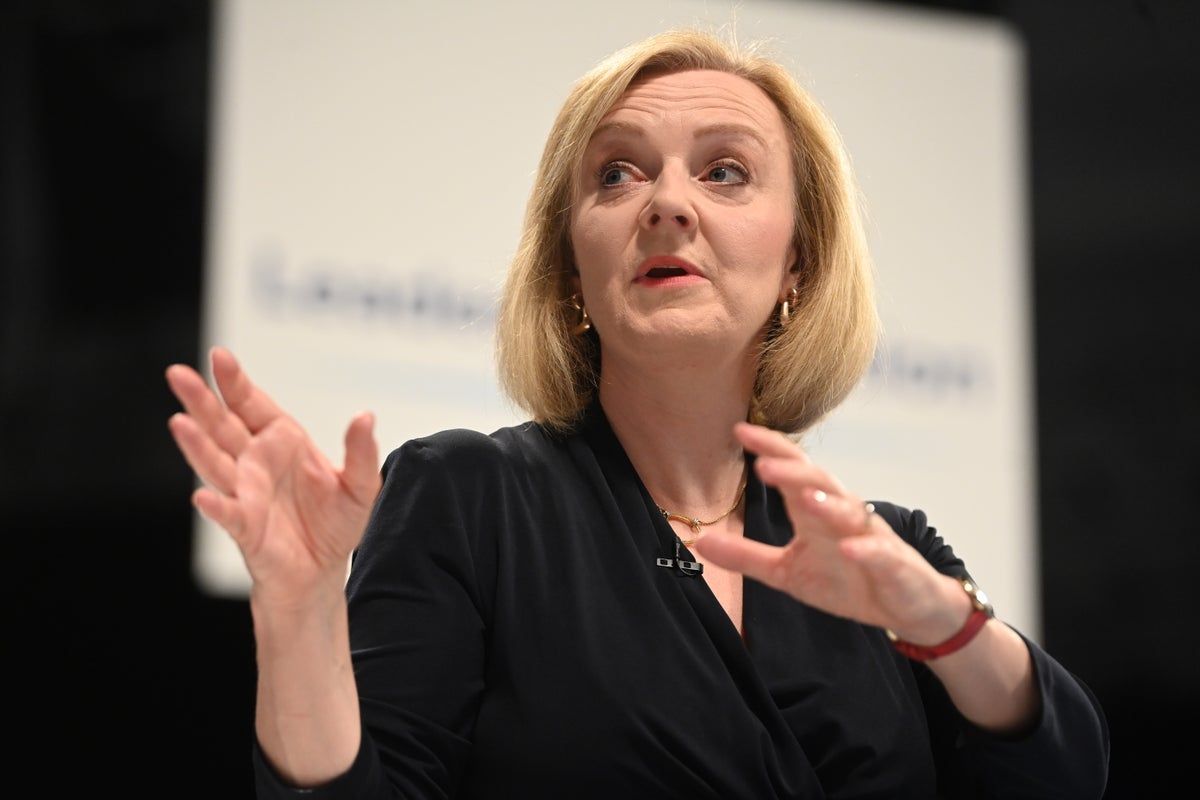
Yet they remain in power, and Liz Truss has picked up the Union Jack – looking increasingly frayed and poorly maintained – and seems intent on using to focus on attacks on "wokeness" and transgender rights. Her slogans and policy suggestions to date are so devoid of sensible economic rationale, so full of culture war rhetoric that I wouldn't be surprised to see another authoritarian wannabe sat in Mar-a-Lago, nodding furiously while dripping cheeseburger grease on a stack of stolen, confidential documents.
We continue to live in perilous, uncertain times. It appears that we will continue to suffer from the affliction of the worst possible leader at the worst possible time. But make no mistake, there is nothing accidental or unfortunate about this. It is not simply a case of bad timing. There is a concerted, organised effort to "make Britain great again". The primary problem is that the Great Britain of old was only Great for a very select few at the artistocratic top, and the serfs and plebs were left to scrap for food and the most basic of rights. That is the world to which they yearn to return, and we are well on the way.
*Go and listen to Londongrad from Tortois Media. It is absolutely fantastic.

